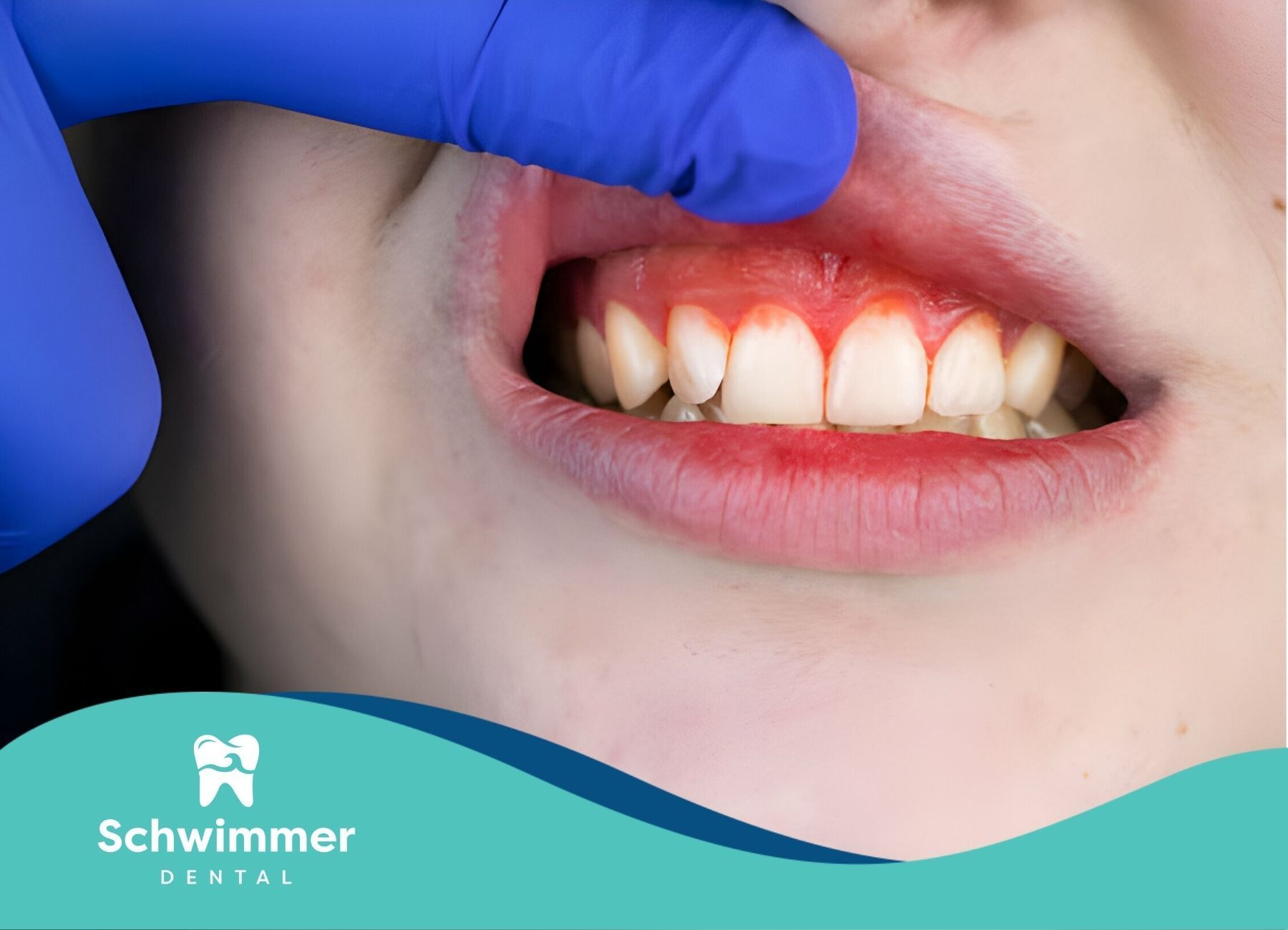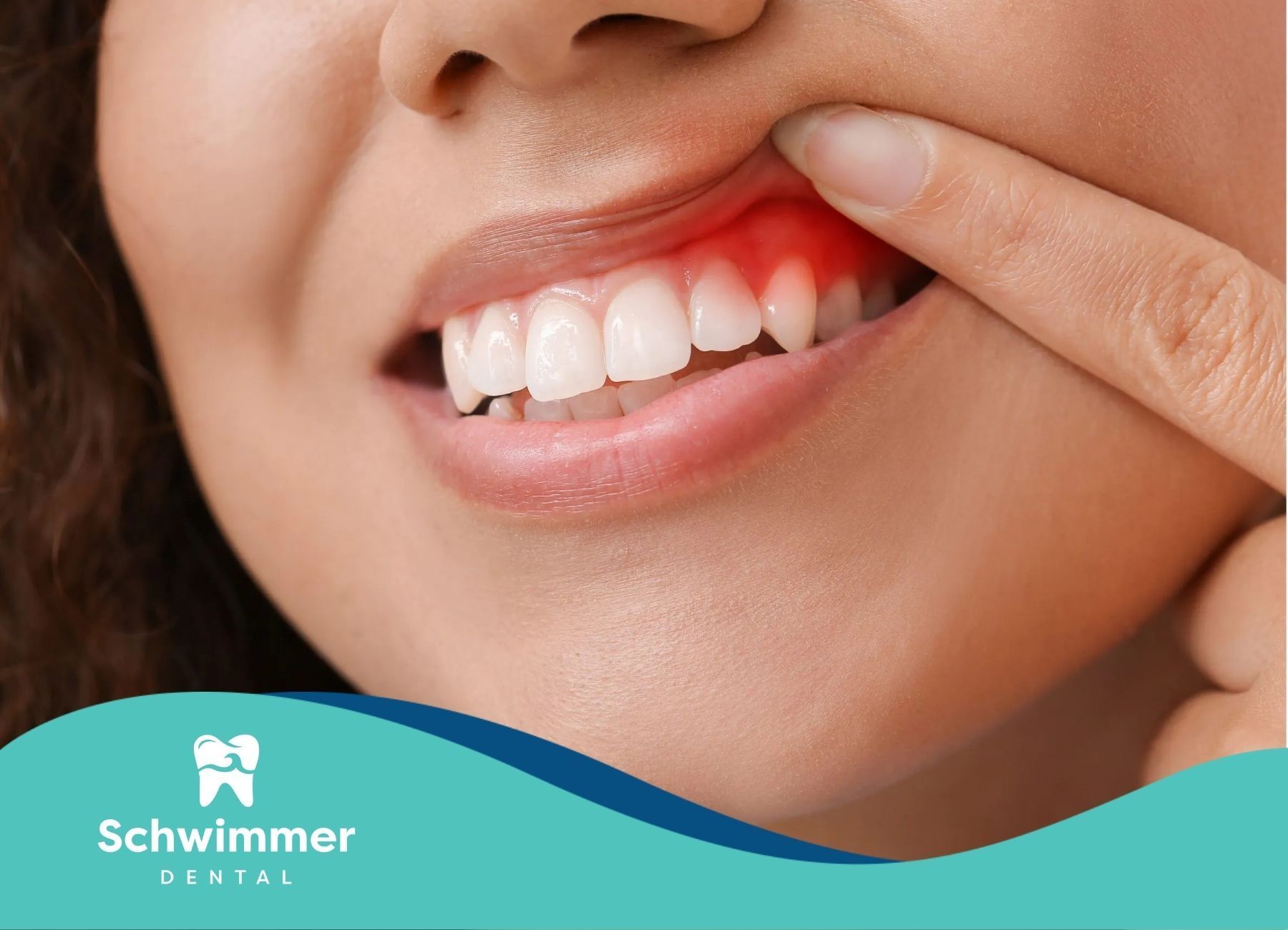Have an appointment? Complete the Intake Form
Are Oral Health Problems Genetic?
Have you ever considered why some individuals experience a higher frequency of dental issues compared to others? The answer might be linked to their genetic makeup. This blog post will explore the significant role genetic factors play in influencing various aspects of oral health. We'll examine how genetics can contribute to dental issues and emphasize the importance of good oral hygiene practices for maintaining a healthy smile.
The Genetic Basis of Oral Health
Our genetic makeup significantly influences our oral health, affecting everything from the health of your teeth, tooth development, and enamel structure to susceptibility to gum disease and tooth decay. Just as our genes determine our hair and eye color, they also play a major role in our predisposition to certain dental problems.
For instance, some individuals may inherit genes that make them more susceptible to tooth decay, while others may have a genetic predisposition to bad teeth and gum disease. Recognizing the influence of genetics on oral health allows for a deeper understanding of individual risk factors and the development of personalized prevention strategies.
Exploring How Genetics Influence Gum Disease Susceptibility
Gum disease, also known as periodontal disease, is a common oral health issue that affects a significant portion of the population and can contribute to bone loss. Interestingly, studies have shown that genetic predisposition plays a crucial role in an individual's susceptibility to this condition.
Certain genes can make individuals more vulnerable to inflammation and bacterial growth in the gums, increasing their risk of developing gum disease. Early diagnosis is paramount in managing gum disease. If you know gum disease runs in your family, it's essential to inform your dentist and schedule regular checkups for early detection and treatment.
The Connection Between Genetics and Tooth Decay Resistance
While genetics can make some individuals more susceptible to tooth decay and contribute to an increased risk of dental issues, including conditions like dentinogenesis imperfecta and amelogenesis imperfecta, it's important to remember that genetic factors are not the sole determinant. Genetic markers can influence the strength of tooth enamel and an individual's susceptibility to the bacteria that cause decay.
However, even with a genetic predisposition to tooth decay, maintaining good oral health by practicing good oral hygiene habits and a healthy lifestyle through a balanced diet can significantly reduce the risk. Brushing twice daily, flossing regularly, and limiting sugary drinks are crucial, regardless of genetic factors. Remember, genetics may lay the foundation, but our lifestyle choices and oral hygiene practices ultimately shape our dental health.
Unraveling the Link Between Genetics and Oral Conditions
Beyond gum disease and tooth decay, genetic factors can also contribute to a range of other oral health issues. These can include oral cancer, cleft lip and palate, and even improper formation of the roof of the mouth, as well as tooth misalignment. Understanding the genetic basis of these conditions is essential for early diagnosis and intervention.
By identifying individuals at higher risk due to their genetic makeup, healthcare providers can tailor treatment plans and implement preventive measures to mitigate potential problems.
Genetic Markers for Oral Cancer Risk
Oral cancer, a serious health concern, can also be influenced by genetic factors, albeit to a lesser extent than lifestyle choices. Research has identified specific genetic markers associated with a higher risk of developing oral cancer, with tobacco and alcohol being the top risk factors.
Individuals carrying these markers may be more susceptible to the deadly disease, particularly when exposed to risk factors like tobacco and alcohol use. While lifestyle modifications remain paramount in reducing oral cancer risk, understanding one's genetic predisposition can encourage increased vigilance and proactive measures.
Hereditary Factors in Tooth Misalignment and Malformations
Tooth misalignment, requiring orthodontic treatment like braces, is often influenced by hereditary factors. The size and shape of the jaw, which are primarily determined by genetics, play a significant role in how teeth erupt and align.
If misaligned teeth or jaw discrepancies run in your family, children may inherit a predisposition to similar issues. Early orthodontic evaluation is crucial for children with a family history of tooth misalignment. Addressing these issues early can prevent more serious complications later on.
Conclusion
Genetic factors and genetic tests play a significant role in shaping our oral health outcomes, including various oral health conditions. Understanding how genetics influence susceptibility to gum disease, tooth decay, poor oral hygiene, oral cancer risk, and even tooth misalignment is crucial for personalized oral care. By unraveling these genetic links, dental professionals can provide targeted preventive strategies and treatments. This knowledge empowers individuals to take proactive steps towards maintaining optimal oral health. If you have concerns about your genetic predisposition to oral health issues, consult with a genetic counselor or dental specialist for personalized guidance. Stay informed, stay proactive, and prioritize your oral health for a confident smile.
At Schwimmer Dental, we understand that genetics can play a role in your oral health. Our experienced team in New Jersey can assess your family history and identify potential genetic predispositions to dental issues. We'll work with you to develop a personalized prevention plan to minimize your risk and maintain optimal oral health. Schedule a consultation today to learn more.
Frequently Asked Questions
Can you inherit a predisposition for cavities?
Yes, a genetic predisposition to dental caries can be inherited. Genes influence tooth enamel strength, saliva composition, and even the types of oral bacteria, including dental plaque, we harbor, all of which contribute to cavity development. However, maintaining good oral hygiene and minimizing sugary foods are crucial, regardless of genetic factors.
Need Assistance? We’re Here to Help
We are dedicated to enhancing your dental health and well-being.
We provide personalized dental care solutions for a confident, healthy smile.
Contact us today for Professional Dental Care.

Our caring staff will help you feel relaxed and comfortable in our state of the art office. We respect your time and pledge to deliver prompt service, backed by the latest knowledge, techniques, and technology.
Email: Office@schwimmerdental.com
Tel: (848) 294-2385
Fax: (732) 899-3347
Address: 1115 Arnold Ave,
Point Pleasant, NJ, 08742
Schwimmer Dental – Website by CWS


